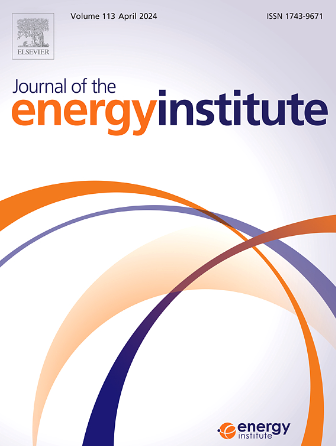Experimental study on performance and emission optimization of MgO nanoparticle-enriched 2nd generation biodiesel: A method for employing nanoparticles to improve cleaner diesel combustion
IF 5.6
2区 工程技术
Q2 ENERGY & FUELS
引用次数: 0
Abstract
An important issue in reducing exhaust emissions and enhancing engine performance is transitioning from conventional fuels to renewable energy-based technologies. This shift is particularly crucial for compression ignition engines, which are widely used in the transportation industries. This study investigates the performance and emission characteristics of a compression ignition engine fueled with second-generation jojoba biodiesel, enhanced using MgO-based nano additives. Experiments were performed under variable load conditions ranging from 0.5 to 3.0 kW, with different concentrations of MgO (50 ppm, 100 ppm and 150 ppm) incorporated into the biodiesel blends. Response Surface Methodology (RSM) was employed to optimize fuel composition and operating conditions for maximum efficiency and minimum emissions. The results indicated a 6.7 % reduction in BSFC and a 7.3 % increase in BTE attributed to the improved combustion efficiency through the addition of 100 ppm MgO. Additionally, CO and HC emissions were reduced by 12.7 % and 30.1 %, respectively. Using RSM, the optimum parameters were found at a load of 1.49 kW and a MgO concentration of 40.9 ppm, achieving a desirability score of 0.7489. This study confirms that jojoba biodiesel with MgO nano additives shows significant potential as an eco-friendly alternative fuel, improving engine performance and reducing emissions. The findings provide valuable insights into its application, particularly in promoting environmental sustainability within the energy sector.
富含氧化镁纳米粒子的第二代生物柴油性能和排放优化实验研究:利用纳米颗粒改善柴油清洁燃烧的方法
本文章由计算机程序翻译,如有差异,请以英文原文为准。
求助全文
约1分钟内获得全文
求助全文
来源期刊

Journal of The Energy Institute
工程技术-能源与燃料
CiteScore
10.60
自引率
5.30%
发文量
166
审稿时长
16 days
期刊介绍:
The Journal of the Energy Institute provides peer reviewed coverage of original high quality research on energy, engineering and technology.The coverage is broad and the main areas of interest include:
Combustion engineering and associated technologies; process heating; power generation; engines and propulsion; emissions and environmental pollution control; clean coal technologies; carbon abatement technologies
Emissions and environmental pollution control; safety and hazards;
Clean coal technologies; carbon abatement technologies, including carbon capture and storage, CCS;
Petroleum engineering and fuel quality, including storage and transport
Alternative energy sources; biomass utilisation and biomass conversion technologies; energy from waste, incineration and recycling
Energy conversion, energy recovery and energy efficiency; space heating, fuel cells, heat pumps and cooling systems
Energy storage
The journal''s coverage reflects changes in energy technology that result from the transition to more efficient energy production and end use together with reduced carbon emission.
 求助内容:
求助内容: 应助结果提醒方式:
应助结果提醒方式:


